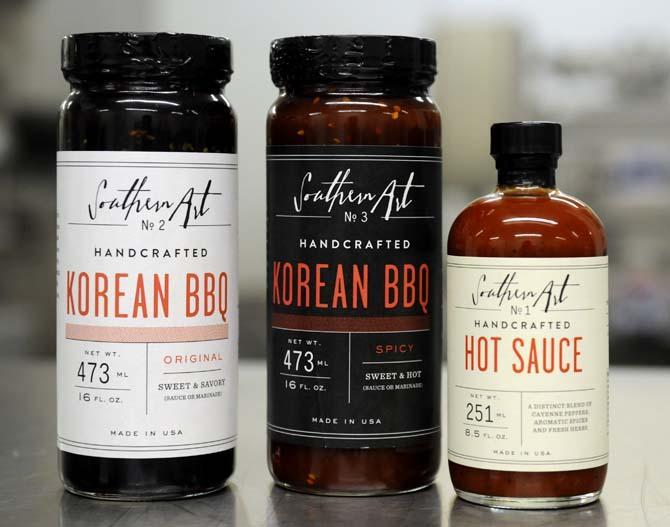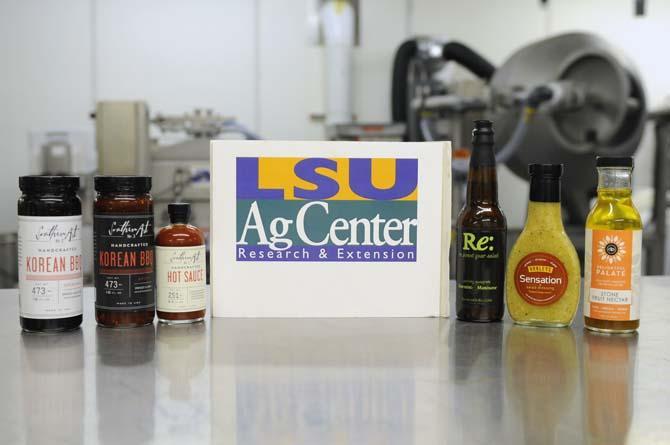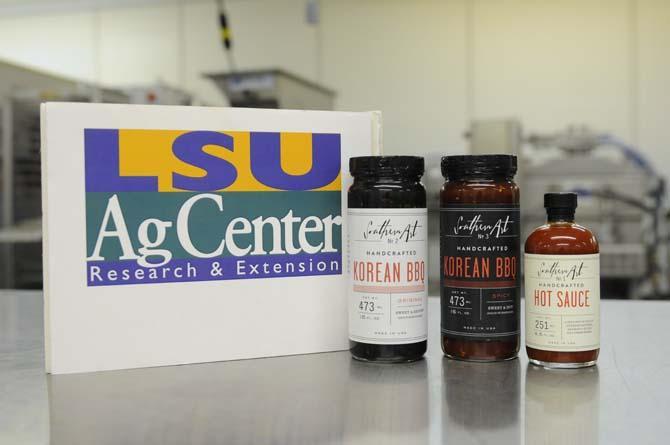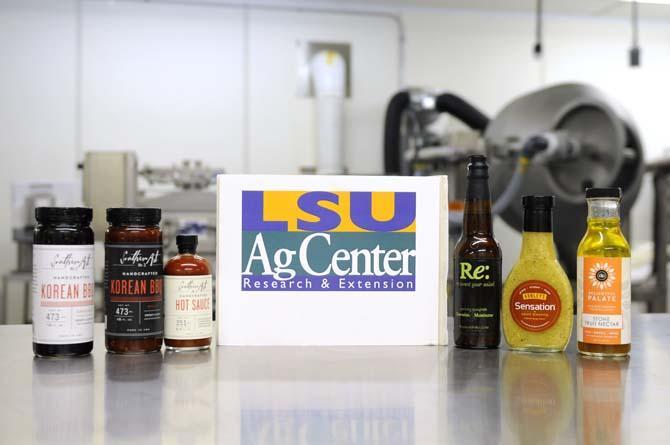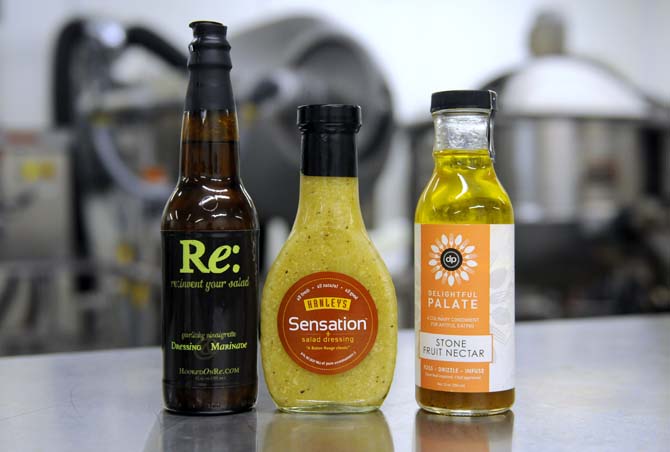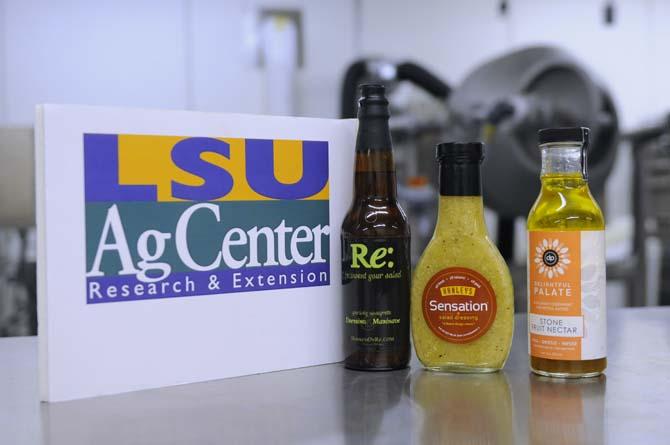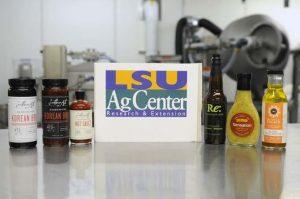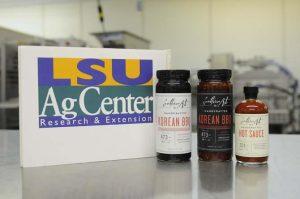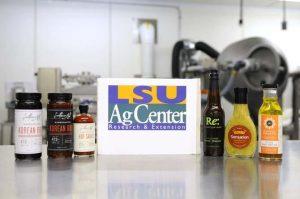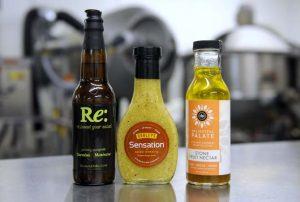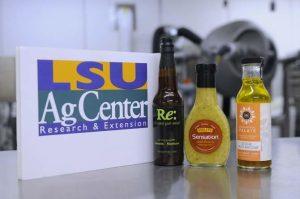Since its official opening in July, the LSU AgCenter Food Incubator’s kettles have been churning out everything from pralines to hummus to salad dressing. Whether based on innovative ideas or grandma’s handwritten recipes, tenants’ products are in high demand, according to incubator coordinator Gaye Sandoz.
The incubator, located in Clyde Ingram Hall, provides food entrepreneurs and small businesses with resources to test, produce, package and market their goods. The incubator was awarded a $20,500 Louisiana Economic Development Business Incubator Support Program grant Oct. 7, which Sandoz said will be used to purchase two 150-gallon kettles.
The incubator’s need for these larger kettles is just one sign of its clients’ success. Sandoz said some are producing so much that making small batches in the incubator’s current 30-gallon kettles the incubator currently owns is not time- or cost-effective.
Sandoz said one of the incubator’s tenants, Hanley’s Foods, made one ton of salad dressing in one day earlier this month. Hanley’s, which is already a supplier to Associated Grocers, is working to make the salad dressing all natural so it can be sold in Baton Rouge’s Whole Foods store.
Getting products like Hanley’s in Whole Foods is a huge positive step, Sandoz said, because it advances small producers who are key to the local food movement.
Together, the incubator’s seven tenants have made about 7,000 units of products since July. Fifteen tenants are on a waiting list to use the facilities.
Sandoz helps market tenants’ products to stores, festivals and media outlets. Food scientist Luis Espinoza conducts food safety tests and helps tenants formulate cost-effective variants of recipes — for example, someone may want a
product to be high in fiber or use only natural ingredients.
The incubator will eventually operate in two locations — Ingram Hall and the new food science building, which is set to open in January. Sandoz said the new building will provide space for more ovens, so the incubator will be able to accommodate tenants who want to make baked goods.
Students from several majors work at the incubator, with duties ranging from demoing products in stores to helping with formulations in the lab. There are a variety of opportunities for learning, Sandoz said, because students are exposed to real-world entrepreneurs and become immersed in the transformation of ideas into sellable products.
“There really is so much to this business and the fact that we can assist students and local Louisiana food entrepreneurs is really special,” Sandoz said, noting that many people have ideas but just need help getting their product off the ground.
Prospective tenants must submit an online inquiry form and give a presentation on their product at a quarterly informational meeting, the last of which was held Oct. 1. Selected producers then work with the Louisiana Business and Technology Center (LBTC) to develop a business plan. Once a tenant lease is signed, product formulations begin at the incubator.
Translating a home kitchen recipe into one that can be produced commercially involves much more than safety tests. Things as simple as the order ingredients are added and how they are measured and mixed affect product quality and must be done precisely.
Teaching tenants about those things improves their products and ability to market them. Espinoza said tenants are serious about understanding how to make their foods safely and efficiently.
“You can see their faces when they learn something new — like, oh, I didn’t know I should pay attention to that, or I always knew that was something to do but I didn’t know why it was happening,” Espinoza said.
Kelly Woo, who lives in Atlanta, visits Baton Rouge every two weeks to mix and package her Southern Art brand of hot sauce in the incubator. Woo said she got the idea for her product 10 years ago, but she wanted to make a version using only natural ingredients before selling it.
“I make my products for my customers just like I would make it for myself,” Woo said.
She said the incubator helps her honor that commitment to giving customers the best product. Espinoza worked with Woo to make the hot sauce shelf stable without using chemical preservatives. Woo said the incubator helped set her hot sauce apart from others because it is now all natural, GMO-free and locally produced.
“There really is so much to this business and the fact that we can assist students and local Louisiana food entrepreneurs is really special.”
AgCenter Food Incubator looks to expand amid success
October 21, 2013
Southern Art is one of the food ventures using the LSU AgCenter Food Incubator to develop different sauces.



